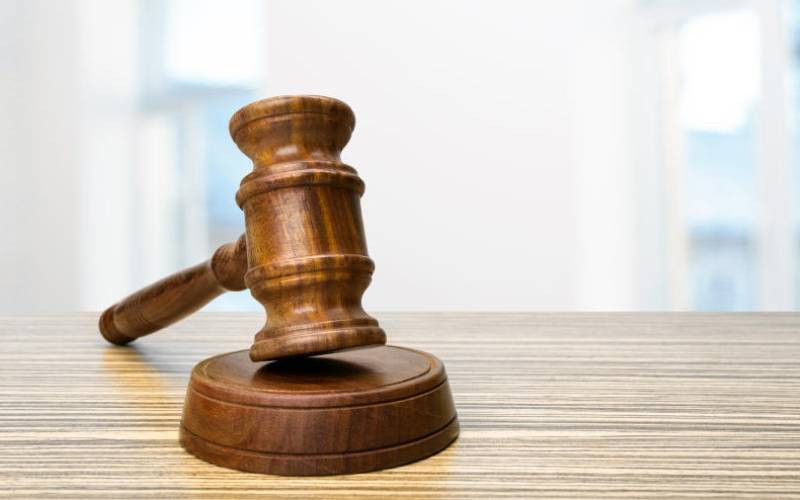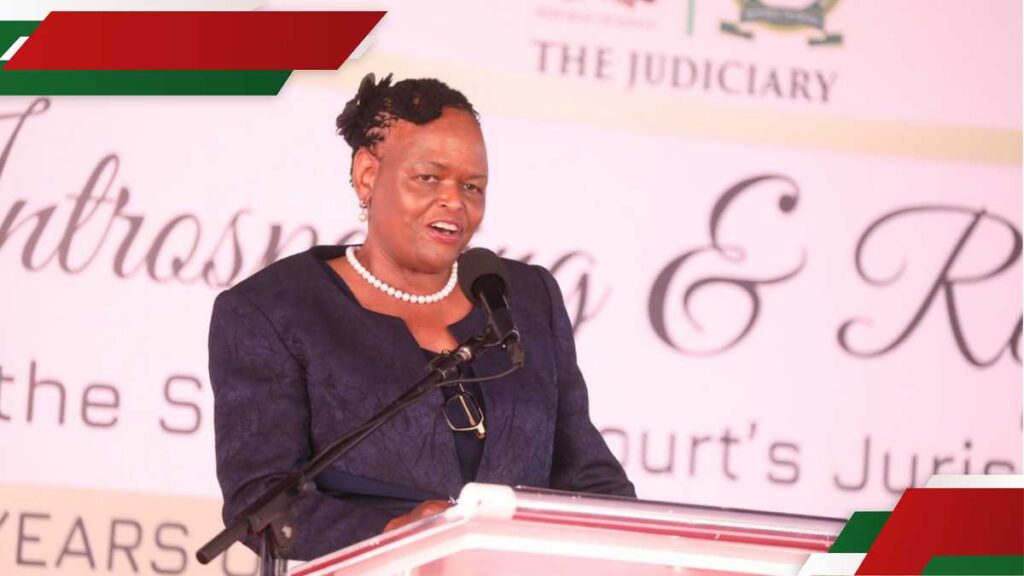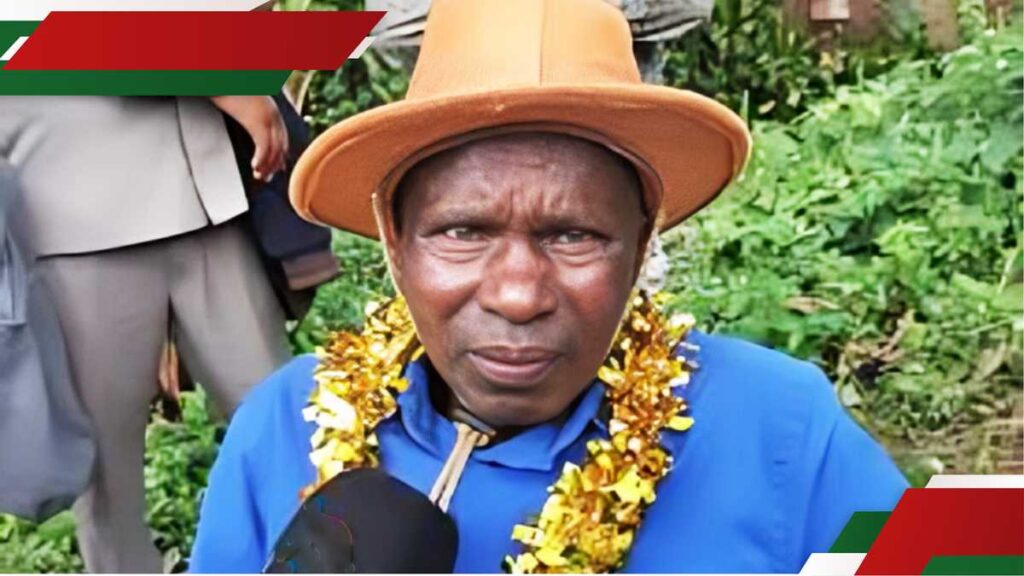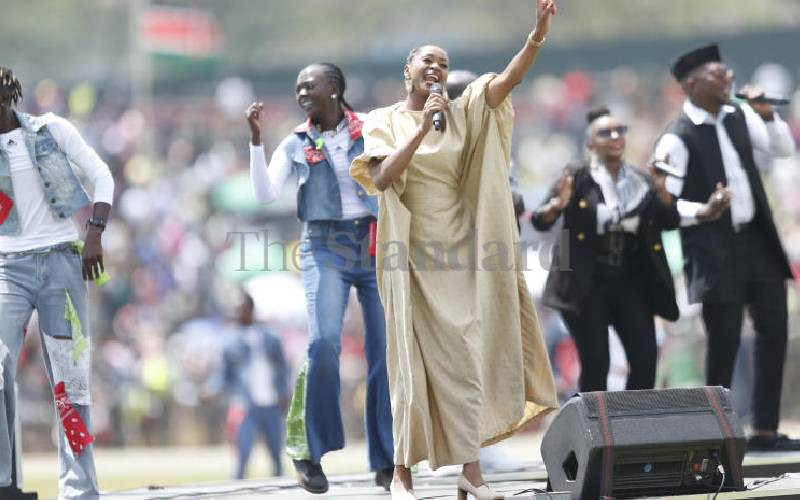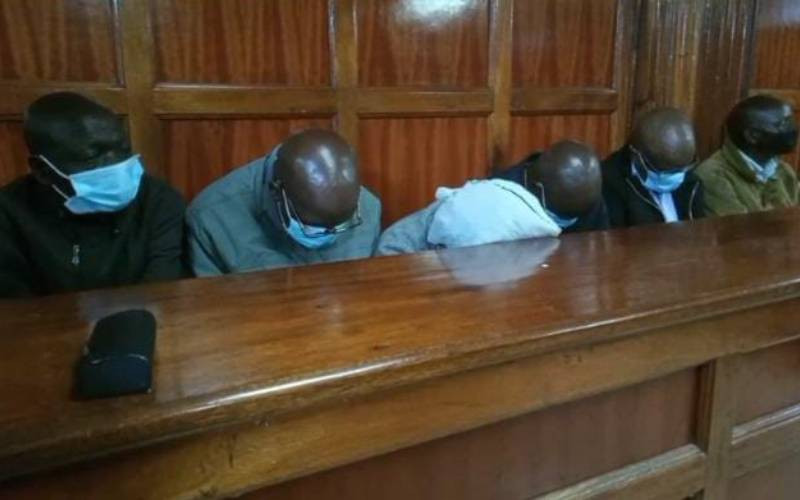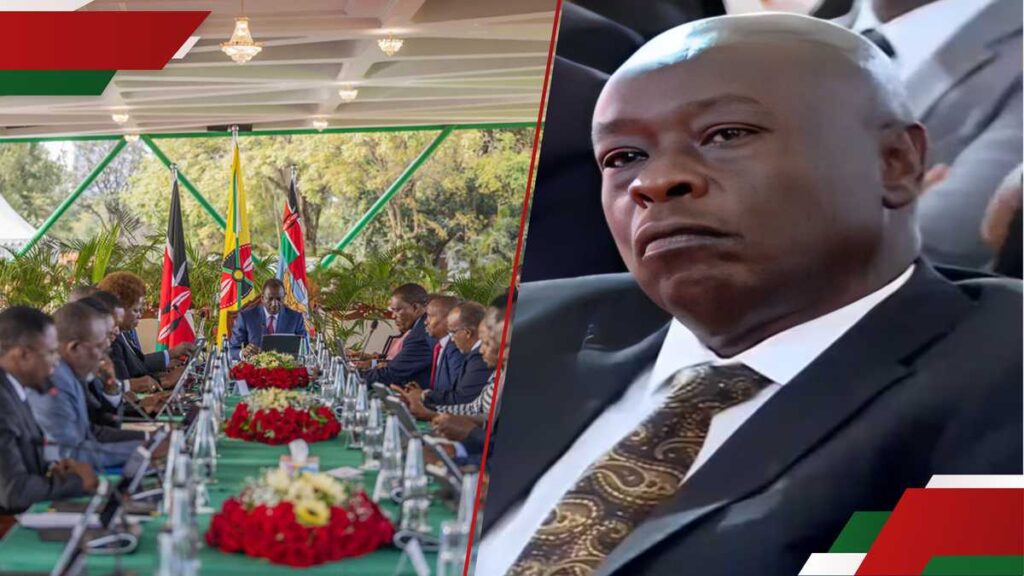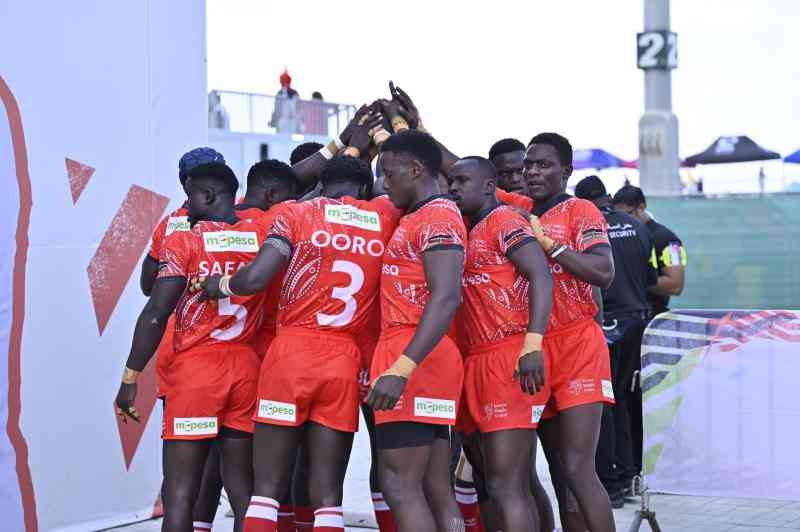The High Court on Tuesday declined to cite President William Ruto, Attorney General Dorcas Odour, and Head of Public Service Felix Koskei for contempt of court over alleged disobedience of an order that barred the gazettement of seven newly nominated commissioners to the Independent Electoral and Boundaries Commission (IEBC).
A three-judge bench comprising Justices Roselyne Aburili, John Chigiti, and Bahati Mwamuye yesterday ruled that the application for contempt, made orally by the petitioners’ lawyers, Senior Counsel Paul Muite, lacked the procedural foundation necessary to warrant a determination.
The bench emphasized that the accused parties, including the Head of state, were not allowed to be heard, and that contempt proceedings, given their quasi-criminal nature, require strict adherence to due process.
“The question of contempt of court, being a grave one, cannot be determined meritoriously on an oral application and against persons, some of whom are not parties to these proceedings and have not been afforded an opportunity to be heard in reply,” Justice Aburili, reading the ruling, stated
The bench added: “We acknowledge that court orders are not mere suggestions and that obedience to court orders is a cornerstone of the rule of law. Every individual and institution, regardless of their position, is under an unqualified obligation to obey court orders.”
However, the court held that no formal contempt application had been filed or served on the individuals named, including the President and Attorney General, thereby denying them a fair hearing under Article 50(1) of the Constitution.
Senior Counsel Paul Muite, representing petitioners Boniface Mwangi and Kelvin Omondi, had urged the court on Monday to impose a two-year custodial sentence on the President, the Attorney General, and Mr Koskei, accusing them of blatantly defying a court order issued on May 29, 2025.
Justice Lawrence Mugambi had issued a conservatory order in the petition filed by Omondi and Mwangi, barring the gazettement, swearing-in, or assumption of office by the seven nominees: Erastus Edung Ethekon, Anne Njeri Nderitu, Moses Alutalala Mukhwana, Mary Karen Sorobit, Hassan Noor Hassan, Francis Odhiambo Aduol, and Fahima Arafat Abdallah.
Despite that order, Gazette Notices Nos. 7724 and 7725, dated June 10, 2025, confirmed the appointment of the commissioners, prompting the contempt application.
Muite contended that the executive had no excuse for the disobedience.
“These orders were issued by a court of competent jurisdiction. The President, through the Attorney General, was represented in that court. He knew the legal implications, and so did the Head of Public Service and the Government Printer. Yet, they went ahead to publish the gazette notice,” the lawyer told the judges.
“Service on the Attorney General is service to the President,” Muite emphasised that the breach was not accidental.
“This court has a solemn duty to uphold its own dignity and authority. If the highest office in the land can ignore a court order, what message does that send to ordinary citizens?” he posed.
He asked the court to not only declare the appointments null and void but also initiate a fresh, constitutionally compliant selection process:
Stay informed. Subscribe to our newsletter
“My submission is that this order of court is entitled, first, to declare this gazette notice a complete nullity, because anything done in violation of court orders is a nullity.”
Muite acknowledged the immunity granted to the President under Article 143 of the Constitution but urged the court to harmonise it with Article 3(1), which binds all persons to the Constitution.
“You are entitled to, in course, have a fine or contrary nullity, including the President. What this court can do, in my submission, is to then suspend the fine to the day that the President ceases to be President. That is the rule of law.”
In its ruling, the bench states: “For the above reasons, and in the absence of any formal application according to the alleged contemnors the opportunity to respond thereto, we find that the oral application for contempt is not well placed.”
Consequently, they dismissed the contempt of court application against the executive.
In a separate ruling, the bench also has declined another application seeking to compel the Attorney General, Head of Public Service, and National Assembly to release IEBC nominee score sheets and selection panel documents
While dismissing the request to release detailed records on the recruitment of seven commissioners to the IEBC, justices Aburili, Chigiti, and Mwamuye ruled that the petitioners had failed to establish a sufficient legal basis for the request.
This is after the petitioners, Omondi and Mwang, had sought access to documents, including individual score sheets by each panellist, cumulative scores of all shortlisted candidates, recommendations, and the transmittal letter dated May 6, 2025, sent to the President.
In their ruling, the judges emphasized that while the right to access information is constitutionally protected under Article 35 of the Constitution, it is subject to statutory procedures outlined in the Access to Information Act.
“The applicants have not made out a case that would make this court compel the respondents (AG, National assembly and Head of Public Service) to supply the petitioners with a complete set of the selection panel’s report, including the score sheets by each panellist, cumulative scores, recommendations, and the transmittal letter,” the court ruled
Justice Chigiti noted that the petitioners had filed a Notice to Produce dated June 15, 2025, under Section 69 of the Evidence Act, seeking disclosure of specific records.
However, the court found the request premature and procedurally flawed, particularly because the petitioners had sought compliance within 24 hours.
“The 24-hour ultimatum sought in the application does not accord with the statutory timelines under Sections 9 and 14 of the Access to Information Act,” the bench stated.
The judges found that the petitioners had not exhausted the legal avenues available to access information.
According to the Access to Information Act, public bodies have up to 21 days to respond to requests.
If no response is given, an applicant must appeal to the Commission on Administrative Justice.
“The petitioners requested the information on May 9, 2025, and filed the petition just four days later, on May 13, without allowing the statutory 21-day period to lapse,” the court observed.
Further, the judges found that the petitioners should have pursued remedies through the statutory framework before seeking judicial intervention:
“In order to secure the information being sought, the petitioners should have invoked Article 35 of the Constitution and its implementing statute, the Access to Information Act. This accords with the doctrine of exhaustion.”
On the role of the Attorney General, Justice Mwamuye clarified that the AG is not a member of the selection panel and does not have custody of recruitment-related records:
“The Attorney General cannot be compelled to produce documents which are not contemplated to be in their custody. The petitioners have not proven that the same are held by that office,” Justice Mwamuye noted.
Similarly, regarding the Head of Public Service, the court held that no nexus had been demonstrated between Mr. Koskei and the selection panel, and therefore, he could not be expected to possess the requested documents.
“The Head of Public Service is neither a member of the Parliamentary Service Commission nor the recipient of the selection panel’s report and attachments. Accordingly, he cannot be expected to have custody of the information,” Justice Mwamuye ruled.
Addressing the notice to produce served on the National Assembly, the court pointed out a constitutional distinction between the National Assembly and the Parliamentary Service Commission (PSC), the latter of which provides secretariat services to the selection panel.
“The PSC is not a party to these proceedings challenging the appointment of the IEBC nominations. The National Assembly, pursuant to Paragraphs 3–5 of the First Schedule of the IEBC Act, only receives a list of nominees and is not mandated by law to have custody of the documents sought,” the court held.
In their ruling, the judges also stated that the PSC is a distinct and independent constitutional entity.
The bench acknowledged that access to information can be restricted in certain cases, especially when third-party rights, such as privacy, may be affected.
“The scope of exceptions to disclosure of information should be clear, narrow, and subject to strict harm and public interest tests… such exceptions must be consistent with Article 24 of the Constitution.”
The court found that the petitioners’ application dated June 15, 2025, lacked merit and failed to comply with procedural requirements.
Consequently, it dismissed the application and declined to issue the production orders of the IEBC nominee score sheets and selection panel documents.
The petitioners had urged the court to compel the AG, Head of Public Service, and the National Assembly to make public and avail in court each of the seven IEBC nominee score sheets and selection panel documents on the grounds that some may have scored fewer points for nominations.
In this case, the petitioners maintain that the appointment process lacked transparency and was manipulated to favour executive loyalists.
They urged the nullification of the commissioners’ appointments and a fresh selection process.
The petitioners argue that the selection process was flawed, opaque, and unconstitutional.
“Nomination process was marred by irregularities, lacked transparency, and violated key constitutional provisions, including those guaranteeing merit-based appointments, regional and ethnic balance, and inclusion of persons with disabilities,” Lawyer Muite told the bench
The petitioners contend that some nominees were irregularly added to the shortlist and did not meet eligibility criteria.
They specifically point to Nderitu, claiming she is still a serving state officer while Sorobit, said to have held a leadership role in a political party within the last five years and Hassan Noor Hassan, who allegedly contested for a political seat circumstance which, they argue, disqualify them under Article 88(2) of the Constitution.
Further, the petition raises concerns over regional imbalance in the proposed appointments, particularly the overrepresentation of the Rift Valley region, allegedly at the expense of others, such as Upper and Lower Eastern Kenya.
They argue this undermines the constitutional requirement for national inclusivity and equity in public appointments.
The three-judge bench will render its judgment on July 8, 2025 the request to quash and declare the nomination of seven IEBC commissioners unconstitutional.








